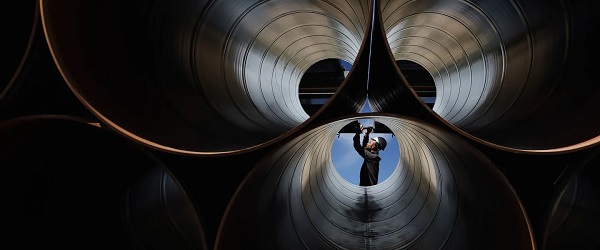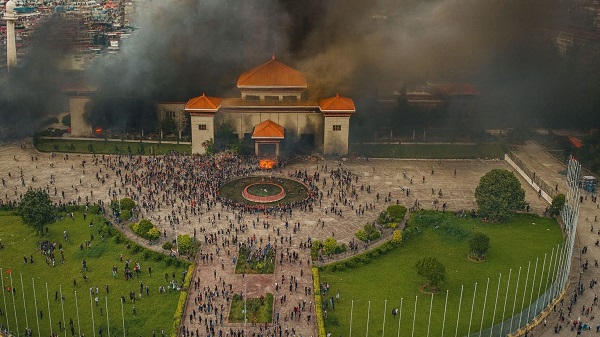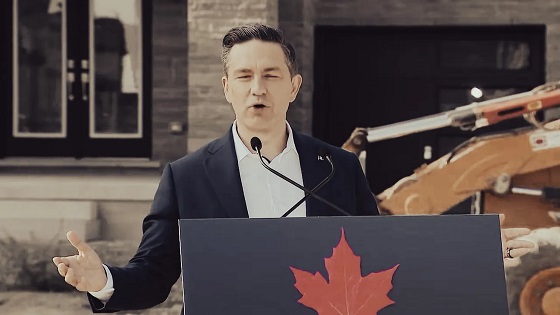Alberta
Another Blow To The Carbon Tax
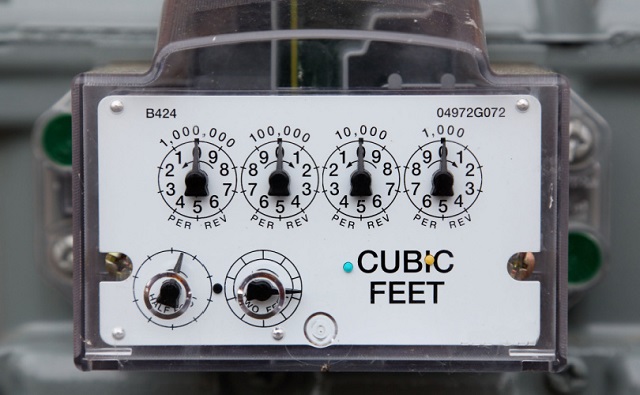
From Project Confederation
By Josh Andrus
Five years ago, I announced the launch of Project Confederation on Danielle Smith’s CHQR 770 radio show.
That interview changed my life forever.
The project launch was driven by a belief that federal policies – including, but not limited to, the carbon tax – were unfairly targeting Alberta and our economy.
Five years later, we find ourselves opening the next chapter of a long-running saga.
Slowly but surely, Canadians – not just Albertans – have worked out that carbon tax doesn’t make sense, doesn’t work, and isn’t constitutional.
And as the public backlash to the carbon tax grew, the federal government compromised the policy even further, making it even more unpopular and even less constitutional.
On Tuesday, Danielle Smith, now Alberta Premier, announced that her government is going to court to challenge the constitutionality of Ottawa’s selective carbon tax exemption on home heating oils.
The carbon tax, of course, is the levy charged for fuel and combustible waste as outlined in the Greenhouse Gas Pollution Pricing Act and its regulations.
The carbon tax is a tax on everything.
Every product you consume relies on energy-intensive steps in the production cycle – whether it’s the combines harvesting crops, commercial trucks transporting goods, or the electricity powering lights and refrigeration at the grocery store, just to name a few.
This drives costs up throughout the production process in virtually every industry.
The carbon tax also serves as the flagship policy of the Liberal-NDP coalition government, which took office following the 2019 election – just two days before my first appearance on Danielle Smith’s show.
In the eyes of the federal government, the carbon tax represents a beacon to the world, signalling Canada’s new global position as a green, socialist utopia.
In the eyes of the voters, it represents a symbol of the Trudeau government’s unpopularity, a major contributor to ongoing affordability problems and a sluggish economy.
In the eyes of the provinces, it is a clear violation of provincial jurisdiction.
The Act requires provinces to establish these punitive carbon taxes, and if they don’t, the Act allows for Ottawa to impose carbon pricing.
When it was introduced, it faced immediate legal challenges from Alberta, Saskatchewan, and Ontario.
They were joined in opposition to the law by Quebec, Manitoba and New Brunswick – meaning that six provinces, making up over 80% of the Canadian population, believed the carbon tax was a violation of provincial jurisdiction.
The provinces contended that natural resources fall under provincial authority, and that the carbon tax essentially imposes a levy on resource development.
Ottawa, however, argued that climate change constitutes a national crisis and thus falls under federal responsibility.
In 2021, the Supreme Court ruled in favour of the federal government – on the premise that it could be applied as a “minimum national standard.”
“This is in fact the very premise of a federal scheme that imposes minimum national standards: Canada and the provinces are both free to legislate in relation to the same fact situation but the federal law is paramount.”
Just two years later, the Liberal-NDP coalition completely abandoned the minimum national standard by granting a carbon tax carve-out to home heating oils.
Here’s the catch.
In Alberta, Saskatchewan and Manitoba, less than one percent of households use home heating oils to keep their homes warm during cold weather.
That number rises to seven percent in New Brunswick, eighteen percent in Newfoundland and Labrador, thirty-two percent in Nova Scotia and forty percent in Prince Edward Island.
The carbon tax had become such an unpopular policy in Atlantic Canada that the Liberals, trying to stop their collapsing poll numbers, decided to try and regain some votes in the region.
If that weren’t enough, the Liberal government blatantly admitted that the decision was political.
On CTV’s Question Period, Rural Economic Development Minister Gudie Hutchings said “I can tell you, the (Liberal) Atlantic caucus was vocal with what they’ve heard from their constituents, and perhaps they need to elect more Liberals in the Prairies so that we can have that conversation, as well.”
So much for the “minimum national standard.”
Immediately, the constitutionality of the carbon tax was called into question.
Saskatchewan Premier Scott Moe said the move was “not about fairness or about families, it’s only about votes.”
Moe moved swiftly, announcing that SaskEnergy – the Crown corporation that supplies natural gas to residents – would no longer collect or remit the carbon tax on home heating bills in Saskatchewan.
In a misguided effort to curry political favour in the Atlantic provinces, the Liberals have completely compromised the legal standing of the carbon tax and opened the door for provinces to explore new legal avenues against their signature policy.
Now, the Alberta government is seizing that opportunity by filing an application for judicial review of the exemption with the Federal Court, requesting a declaration that the exemption is “both unconstitutional and unlawful.”
“Albertans simply cannot stand by for another winter while the federal government picks and chooses who their carbon tax applies to,” Smith said in a statement. “Since they won’t play fair, we’re going to take the federal government back to court.”
Minister of Justice Mickey Amery added that:
“This exemption is not only unfair to the vast majority of Canadians, but it is also unlawful as the federal government does not have the authority to make special exemptions for certain parts of the country under the Greenhouse Gas Pollution Pricing Act.”
“The federal government isn’t even following its own laws now. Someone needs to hold them accountable, and Alberta is stepping up to do just that.”
The carbon tax has always been unfair to western Canadians, where households use more energy per capita, thanks to our geography and climate.
In a press conference, Danielle Smith went further, saying:
“We’re calling on (the federal government) to repeal the carbon tax. We’ve been calling for that for years. The retail carbon tax is just punitive to taxpayers. It’s punitive to consumers.”
We agree.
It adds an additional expense at every level of the economy, affecting everything from home heating to transportation, and it creates an environment of higher prices on the goods and services we all rely on.
It’s time to take the action that should have been taken long ago.
It’s time to repeal the carbon tax.
Please sign this petition and join our effort to hold the federal government accountable:
Once you’ve signed, please share with your friends, family, and every Canadian.
Regards,
Josh Andrus
Executive Director
Project Confederation
Alberta
Equalization program disincentivizes provinces from improving their economies

From the Fraser Institute
By Tegan Hill and Joel Emes
As the Alberta Next Panel continues discussions on how to assert the province’s role in the federation, equalization remains a key issue. Among separatists in the province, a striking 88 per cent support ending equalization despite it being a constitutional requirement. But all Canadians should demand equalization reform. The program conceptually and practically creates real disincentives for economic growth, which is key to improving living standards.
First, a bit of background.
The goal of equalization is to ensure that each province can deliver reasonably comparable public services at reasonably comparable tax rates. To determine which provinces receive equalization payments, the equalization formula applies a hypothetical national average tax rate to different sources of revenue (e.g. personal income and business income) to calculate how much revenue a province could generate. In theory, provinces that would raise less revenue than the national average (on a per-person basis) receive equalization, while province’s that would raise more than the national average do not. Ottawa collects taxes from Canadians across the country then redistributes money to these “have not” provinces through equalization.
This year, Ontario, Quebec, Manitoba and all of Atlantic Canada will receive a share of the $26.2 billion in equalization spending. Alberta, British Columbia and Saskatchewan—calculated to have a higher-than-average ability to raise revenue—will not receive payments.
Of course, equalization has long been a contentious issue for contributing provinces including Alberta. But the program also causes problems for recipient or “have not” provinces that may fall into a welfare trap. Again, according to the principle of equalization, as a province’s economic fortunes improve and its ability to raise revenues increases, its equalization payments should decline or even end.
Consequently, the program may disincentivize provinces from improving their economies. Take, for example, natural resource development. In addition to applying a hypothetical national average tax rate to different sources of provincial revenue, the equalization formula measures actual real-world natural resource revenues. That means that what any provincial government receives in natural resource revenue (e.g. oil and hydro royalties) directly affects whether or not it will receive equalization—and how much it will receive.
According to a 2020 study, if a province receiving equalization chose to increase its natural resource revenues by 10 per cent, up to 97 per cent of that new revenue could be offset by reductions in equalization.
This has real implications. In 2018, for instance, the Quebec government banned shale gas fracking and tightened rules for oil and gas drilling, despite the existence of up to 36 trillion cubic feet of recoverable natural gas in the Saint Lawrence Valley, with an estimated worth of between $68 billion and $186 billion. Then in 2022, the Quebec government banned new oil and gas development. While many factors likely played into this decision, equalization “claw-backs” create a disincentive for resource development in recipient provinces. At the same time, provinces that generally develop their resources—including Alberta—are effectively punished and do not receive equalization.
The current formula also encourages recipient provinces to raise tax rates. Recall, the formula calculates how much money each province could hypothetically generate if they all applied a national average tax structure. Raising personal or business tax rates would raise the national average used in the formula, that “have not” provinces are topped up to, which can lead to a higher equalization payment. At the same time, higher tax rates can cause a decline in a province’s tax base (i.e. the amount of income subject to taxes) as some taxpayers work or invest less within that jurisdiction, or engage in more tax planning to reduce their tax bills. A lower tax base reduces the amount of revenue that provincial governments can raise, which can again lead to higher equalization payments. This incentive problem is economically damaging for provinces as high tax rates reduce incentives for work, savings, investment and entrepreneurship.
It’s conceivable that a province may be no better off with equalization because of the program’s negative economic incentives. Put simply, equalization creates problems for provinces across the country—even recipient provinces—and it’s time Canadians demand reform.
Alberta
Provincial pension plan could boost retirement savings for Albertans

From the Fraser Institute
By Tegan Hill and Joel Emes
In 2026, Albertans may vote on whether or not to leave the Canada Pension Plan (CPP) for a provincial pension plan. While they should weigh the cost and benefits, one thing is clear—Albertans could boost their retirement savings under a provincial pension plan.
Compared to the rest of Canada, Alberta has relatively high rates of employment, higher average incomes and a younger population. Subsequently, Albertans collectively contribute more to the CPP than retirees in the province receive in total CPP payments.
Indeed, from 1981 to 2022 (the latest year of available data), Alberta workers paid 14.4 per cent (annually, on average) of total CPP contributions (typically from their paycheques) while retirees in the province received 10.0 per cent of the payments. That’s a net contribution of $53.6 billion from Albertans over the period.
Alberta’s demographic and income advantages also mean that if the province left the CPP, Albertans could pay lower contribution rates while still receiving the same retirement benefits under a provincial pension plan (in fact, the CPP Act requires that to leave CPP, a province must provide a comparable plan with comparable benefits). This would mean Albertans keep more of their money, which they can use to boost their private retirement savings (e.g. RRSPs or TFSAs).
According to one estimate, Albertans’ contribution rate could fall from 9.9 per cent (the current base CPP rate) to 5.85 per cent under a provincial pension plan. Under this scenario, a typical Albertan earning the median income ($50,000 in 2025) and contributing since age 18, would save $50,023 over their lifetime from paying a lower rate under provincial pension plan. Thanks to the power of compound interest, with a 7.1 per cent (average) nominal rate of return (based on a balanced portfolio of investments), those savings could grow to nearly $190,000 over the same worker’s lifetime.
Pair that amount with what you’d receive from the new provincial pension plan ($265,000) and you’d have $455,000 in retirement income (pre-tax)—nearly 72 per cent more than under the CPP alone.
To be clear, exactly how much you’d save depends on the specific contribution rate for the new provincial pension plan. We use 5.85 per cent in the above scenario, but estimates vary. But even if we assume a higher contribution rate, Albertan’s could still receive more in retirement with the provincial pension plan compared to the current CPP.
Consider the potential with a provincial pension contribution rate of 8.21 per cent. A typical Albertan, contributing since age 18, would generate $330,000 in pre-tax retirement income from the new provincial pension plan plus their private savings, which is nearly one quarter larger than they’d receive from the CPP alone (again, $265,000).
Albertans should consider the full costs and benefits of a provincial pension plan, but it’s clearly Albertans could benefit from higher retirement income due to increased private savings.
-

 International2 days ago
International2 days agoBreaking: ‘Catch This Fascist’: Radicalized Utah Suspect Arrested in Charlie Kirk Assassination, Officials Say
-

 Crime1 day ago
Crime1 day agoFormer NYPD Inspector Shares What Family Of Alleged Charlie Kirk Assassin Feared Before Turning Him In
-

 International2 days ago
International2 days agoCharlie Kirk Shooting Suspect Revealed: Here’s What His Ammunition Said
-

 Crime2 days ago
Crime2 days agoArrest made in Charlie Kirk assassination
-

 Health2 days ago
Health2 days agoCanadians left with no choice but euthanasia when care is denied
-

 Business2 days ago
Business2 days agoUpcoming federal budget likely to increase—not reduce—policy uncertainty
-

 Crime2 days ago
Crime2 days ago‘Radicalized’ shooter dead, two injured in wake of school shooting
-
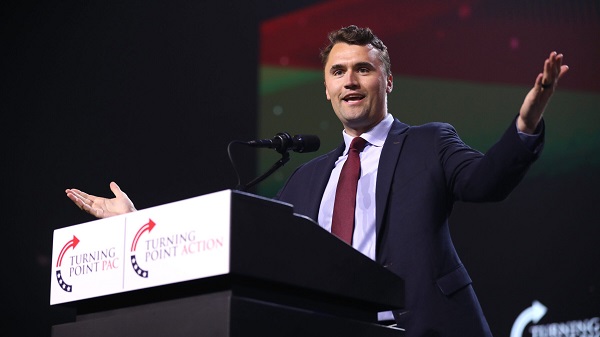
 J.D. Tuccille2 days ago
J.D. Tuccille2 days agoAfter Charlie Kirk’s Murder, Politicians Can Back Away From the Brink, or Make Matters Worse


